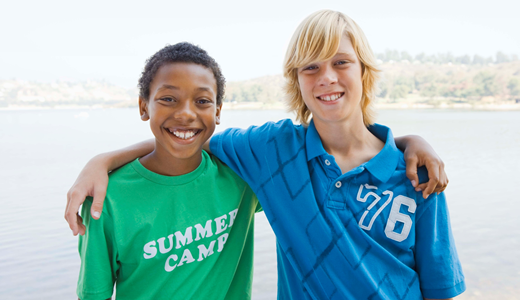I’m not sure I would have made it without Joe.
He was my best friend from fifth grade through, well, all the way up to today, 35-ish or so years later. And Joe played an especially critical, stabilizing role during my tumultuous adolescent years.
As a tween and teen, I was moody and insecure, given to deep emotional funks and temper tantrums. I liked girls who didn’t like me. I got picked on. And I did my share of picking on a few unfortunates too. (Just like a lot of adolescents, from what I read.) Even though I have a deep affinity for much of the music of the ’80s, I often tell people that I wouldn’t do junior high again for all of the money in the world.
But Joe, well, Joe made it tolerable. He put up with my temper tantrums. He talked me off the ledge. He listened to me pine and whine about girls who would never pine back for me. In short, he was everything you’d ever want in a best friend.
I don’t know what life would have been like through those volatile years without Joe. But I’m pretty sure that I would have been even more emotionally and relationally vulnerable than I already felt.
So what does this indulgent confessional have to do with anything, you ask? Well let me tell you.
Sometimes science validates what common sense tells us is true. And so it is with a new study from Murdoch University, which found that teens exhibited lower levels of sadness, jealousy and joy simply by being with their best buds (both physically and online). Says Ph.D candidate Bep Uink, who led the study, “Students with strong, healthy friendships are more resilient to the daily stressors of life, and it is important for teenagers to learn how to move forward after a stressor—such as a fight with a friend—and not to withdraw from people.”
Uink also added, “We saw that teenagers were less likely to become as emotionally affected by these sorts of stressors if they had a friend with them after the upset. This was particularly marked with the girls involved in the study.”
Most of us who survived adolescence and made it more or less safely to adulthood know how important close, healthy friendships are. Still, studies such as this one serve as an empirical reminder that the quality of teens’ relationships really does make an important difference in the way they traverse the inevitable emotional bumps of those sometimes tumultuous years.






Recent Comments